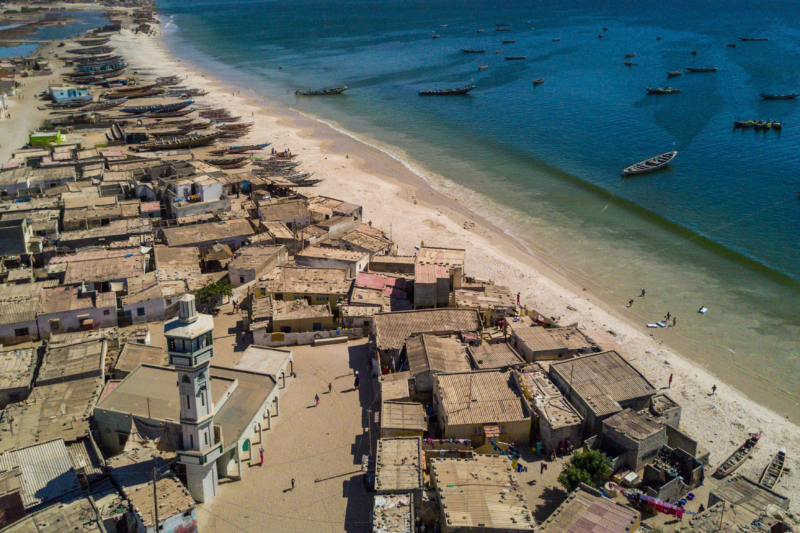Solution provider

Through its global network of missions and experts, the Ministry of Foreign Affairs of Denmark facilitates intelligent cleantech solutions worldwide.
Case
Climate change adaptation
Coastal protection
Nature based solutions


Through its global network of missions and experts, the Ministry of Foreign Affairs of Denmark facilitates intelligent cleantech solutions worldwide.
Add the case to your visit request and let us know that you are interested in visiting Denmark
The effects of climate change are magnified by the area’s rapid urbanization. Senegal’s 718 km coastline is home to as many as 52 per cent of the population, with fishing, tourism, and horticulture being the main economic activities. 90 per cent of industries are located along the coast and contribute with 68 per cent of the GDP. This economically vital coastal region, with its sandy and rocky coastline, wetlands, and mangroves, is highly vulnerable to the effects of climate change. Solutions must be found to counter the effects of climate change for Ndoye and the other inhabitants on the coastline to maintain their livelihood.
Planting trees to protect the coastline, and hence, regenerate the ecosystem and maintain means of income is one solution. Another is introducing conservation of fish to generate income opportunities. These initiatives are supported by the World Bank-managed West Africa Coastal Areas Program (WACA).
Denmark supports WACA, through the Nordic Development Fund (NDF), helping West African countries to sustainably manage their coastal areas and strengthen their socio-economic resilience to the effects of climate change.
The NDF is a joint development finance institution between Denmark, Finland, Iceland, Norway, and Sweden, established in 1989. Denmark’s owner’s share is around 22 per cent.
Coastal protection work is planned for eastern and western Corniches road in Dakar as well as protection of the Island of Gorée, a UNESCO World Heritage Site. Saint-Louis on the Langue de Barbarie is also targeted for interventions focusing on citizen engagement and a local initiative to strengthen resilience and improve the livelihoods and well-being of people affected by coastal erosion.